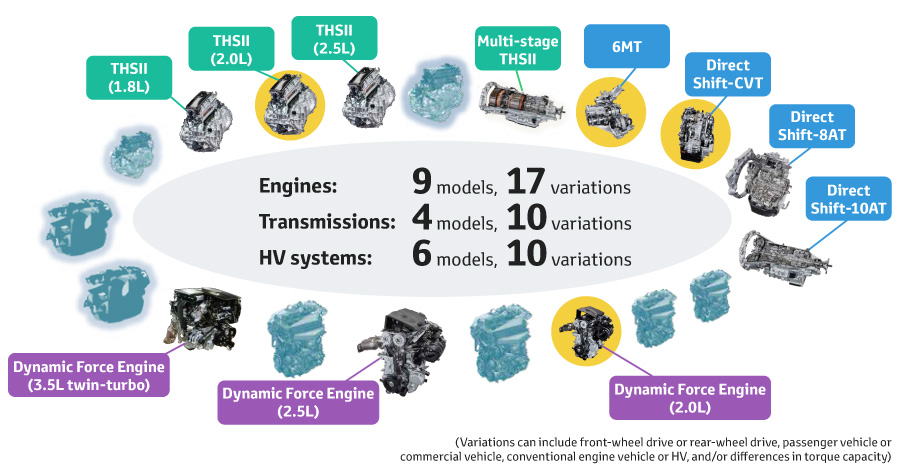It seems as though you may actually be right, and I may be wrong regarding downsizing at Toyota.
https://www.mag-x.com/shop/products/detail.php?product_id=109
The latest issue of Mag X claims that Toyota has a newly developed 2.4L cylinder turbo engine. I can't discern any other details as I don't speak Japanese. I can only assume this would be replacing the 8AR-FTS.
I will be the first to admit I was wrong.
Despite no previously clear evidence, we now have evidence of downsizing in the TNGA era (besides the V35A). While I had viewed the V35A as an exception, it looks like this is not the case if this 2.4L turbo engine turns out to be true. The key question is, will this supposed 2.4L turbo replace the GR V6 in all markets, some markets, or not at all? In the best-case scenario personally speaking, I feel this engine may replace all current applications of the 8AR-FTS and no more than that. As I am personally against downsizing, I can only hope for the best-case scenario that downsizing overall will be market-selective and model selective. I have hope for this as Toyota's master TNGA powertrain diagram does show 2 mystery engines above the V35A, but also plenty of engines below the V35A. I simply cannot imagine Toyota going to 100% downsizing, as we already have the M20A and A25A which are not downsized. If hypothetically all other yet-to-be-revealed TNGA engines were downsized turbo engines, I would seriously reconsider being a Toyota fan. I have great confidence though that this won't happen. Toyota knows that some world markets (and also specific market segments) hate downsized turbo engines. Toyota themselves also know for superior combustion, superior driveability and the best thermal efficiency, higher displacement is often preferable.
On another note, looking at it now Toyota's TNGA powertrain diagram has the engines most certainly ordered by displacement, regardless of forced induction or not. Just like the THS systems are going by ascending order clockwise, as well as the transmissions. Therefore I believe this apparent new 2.4L turbo will slot in the diagram between the A25A and the M20A. That means that a mystery engine still remains on the diagram between the V35A and the A25A. I would imagine that engine will be the new global workhorse V6 engine. The other question is, will this 2.4L turbo engine be based on the A25A or the M20A? Surely it cannot be yet another new engine code, as that is not the TNGA way.
I am personally most excited by the engines above the V35A. My final guess is that one of the engines is the rumored 4.0L TT V8, and the other engine is a big displacement replacement for the 3UR engine. The engine between the A25A and V35A is also exciting.

